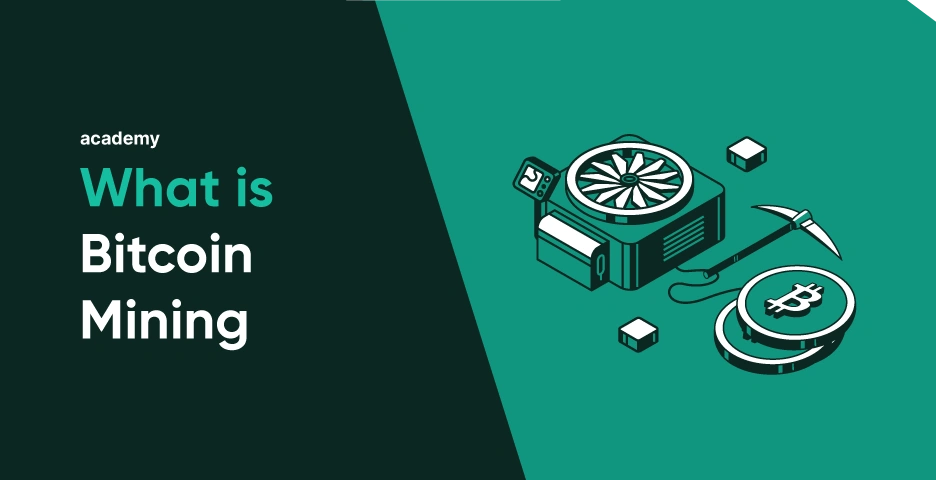What is Bitcoin Mining, and Why is it Necessary for the Network?
Bitcoin has become a hot topic in recent years, sparking curiosity, excitement, and confusion in equal measure. At the heart of the Bitcoin network is something called mining—a process that often gets mentioned but isn’t always fully understood. Let’s break it down in simple terms.
What Exactly is Bitcoin Mining?
Bitcoin mining is the process by which new bitcoins are introduced into circulation, but it’s also how the Bitcoin network remains secure and decentralized. Unlike traditional currencies, which are issued by a central authority like a government or a bank, Bitcoin is maintained by a distributed network of computers (known as miners) scattered across the world.
These miners use powerful computers to solve complex mathematical puzzles. When a miner solves one of these puzzles, they get the right to add a new block of transactions to the Bitcoin blockchain—a kind of digital ledger that records all Bitcoin transactions. As a reward for their efforts, miners are granted a certain amount of Bitcoin. This is how new bitcoins are “mined” and added to the supply.
Why Is Mining Necessary?
You might be wondering why this complicated process is necessary. Wouldn’t it be easier if Bitcoin transactions could just be processed in a straightforward manner, like a bank transfer? Well, the answer lies in Bitcoin’s key features: decentralization and security.
Decentralization
Bitcoin is designed to operate without a central authority. This means no government, company, or individual controls it. Instead, the network is maintained by many independent miners. These miners validate transactions and keep the network running smoothly. This decentralized approach gives Bitcoin its unique appeal: it’s open, permissionless, and resistant to censorship.
Security
Bitcoin mining plays a crucial role in securing the network. Each block of transactions must be verified and added to the blockchain. This verification process requires solving complex cryptographic puzzles, which prevents anyone from easily tampering with transaction data. In other words, mining ensures that Bitcoin transactions are valid and irreversible, protecting the network from attacks.
Proof of Work: The Backbone of Bitcoin Mining
At the heart of Bitcoin mining is something called Proof of Work (PoW). PoW is the process by which miners demonstrate that they’ve done the necessary computational work to add a new block to the blockchain. Essentially, PoW is a competitive race—miners are competing to solve the next puzzle. The first miner to solve it earns the right to add the block and claim the Bitcoin reward.
This system has several benefits:
It prevents fraud. No one can easily manipulate transactions or the blockchain.
It maintains the integrity of the network. Since solving these puzzles requires significant computational power, it’s difficult for any one miner to dominate the network.
However, PoW also requires vast amounts of energy. This has led to debates about Bitcoin’s environmental impact, and many are exploring more energy-efficient alternatives like Proof of Stake (PoS) for future blockchain networks.
Mining as a Self-Regulating System
One fascinating aspect of Bitcoin mining is how it automatically adjusts to ensure the network remains stable. Every 10 minutes or so, a new block of transactions is added to the blockchain. But what happens if more miners join the network, and they start solving the puzzles too quickly? This would lead to blocks being added too fast, and the system would become unstable.
To prevent this, Bitcoin’s mining difficulty adjusts itself every 2,016 blocks (approximately every two weeks). If miners are solving puzzles too quickly, the difficulty increases. If they’re solving them too slowly, it decreases. This dynamic adjustment keeps the network operating at a consistent pace, ensuring stability and predictability.
The Importance of Rewards: Bitcoin Halving
The reward that miners receive for adding new blocks decreases over time. This process, known as Bitcoin halving, occurs roughly every four years. Initially, miners received 50 bitcoins per block. Today, the reward is 6.25 bitcoins, and it will continue to decrease over time.
Why does this matter? The decreasing rewards are designed to control the supply of Bitcoin and mimic the scarcity of precious metals like gold. The total supply of Bitcoin is capped at 21 million, meaning that over time, fewer and fewer bitcoins will be mined. This built-in scarcity has contributed to Bitcoin’s value over the years, as demand often outstrips supply.
Final Thoughts: Why Bitcoin Mining Matters
Bitcoin mining is essential for the functioning and security of the network. Without it, there would be no way to process transactions, secure the blockchain, or introduce new bitcoins into circulation. The decentralized nature of mining makes Bitcoin resilient, while the process itself ensures that transactions are trustworthy and irreversible.
For anyone curious about how Bitcoin works behind the scenes, understanding mining is a crucial first step. While it’s a complex and energy-intensive process, it’s also what makes Bitcoin revolutionary: a peer-to-peer, decentralized digital currency that operates outside of traditional financial systems.
So, the next time you hear about Bitcoin miners, think of them as the ones keeping the network alive, secure, and ticking—one solved puzzle at a time.

